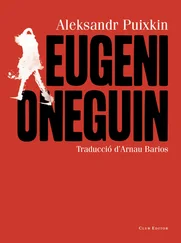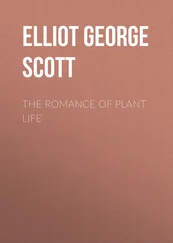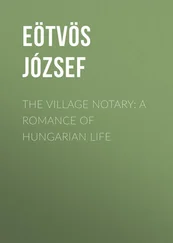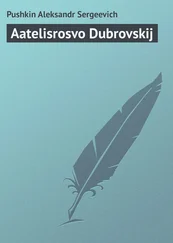Aleksandr Pushkin - Eugene Oneguine [Onegin]. A Romance of Russian Life in Verse
Здесь есть возможность читать онлайн «Aleksandr Pushkin - Eugene Oneguine [Onegin]. A Romance of Russian Life in Verse» весь текст электронной книги совершенно бесплатно (целиком полную версию без сокращений). В некоторых случаях можно слушать аудио, скачать через торрент в формате fb2 и присутствует краткое содержание. Год выпуска: 2007, Жанр: Поэзия, на английском языке. Описание произведения, (предисловие) а так же отзывы посетителей доступны на портале библиотеки ЛибКат.
- Название:Eugene Oneguine [Onegin]. A Romance of Russian Life in Verse
- Автор:
- Жанр:
- Год:2007
- ISBN:нет данных
- Рейтинг книги:4 / 5. Голосов: 1
-
Избранное:Добавить в избранное
- Отзывы:
-
Ваша оценка:
- 80
- 1
- 2
- 3
- 4
- 5
Eugene Oneguine [Onegin]. A Romance of Russian Life in Verse: краткое содержание, описание и аннотация
Предлагаем к чтению аннотацию, описание, краткое содержание или предисловие (зависит от того, что написал сам автор книги «Eugene Oneguine [Onegin]. A Romance of Russian Life in Verse»). Если вы не нашли необходимую информацию о книге — напишите в комментариях, мы постараемся отыскать её.
Eugene Oneguine [Onegin]. A Romance of Russian Life in Verse — читать онлайн бесплатно полную книгу (весь текст) целиком
Ниже представлен текст книги, разбитый по страницам. Система сохранения места последней прочитанной страницы, позволяет с удобством читать онлайн бесплатно книгу «Eugene Oneguine [Onegin]. A Romance of Russian Life in Verse», без необходимости каждый раз заново искать на чём Вы остановились. Поставьте закладку, и сможете в любой момент перейти на страницу, на которой закончили чтение.
Интервал:
Закладка:
XXVIII
I still a complication view,
My country's honour and repute
Demands that I translate for you
The letter which Tattiana wrote.
At Russ she was by no means clever
And read our newspapers scarce ever,
And in her native language she
Possessed nor ease nor fluency,
So she in French herself expressed.
I cannot help it I declare,
Though hitherto a lady ne'er
In Russ her love made manifest,
And never hath our language proud
In correspondence been allowed. [41] It is well known that until the reign of the late Tsar French was the language of the Russian court and of Russian fashionable society. It should be borne in mind that at the time this poem was written literary warfare more or less open was being waged between two hostile schools of Russian men of letters. These consisted of the Arzamass, or French school, to which Pushkin himself together with his uncle Vassili Pushkin the "Nestor of the Arzamass" belonged, and their opponents who devoted themselves to the cultivation of the vernacular.
XXIX
They wish that ladies should, I hear,
Learn Russian, but the Lord defend!
I can't conceive a little dear
With the "Well-Wisher" in her hand! [42] The "Blago-Namierenni," or "Well-Wisher," was an inferior Russian newspaper of the day, much scoffed at by contemporaries. The editor once excused himself for some gross error by pleading that he had been "on the loose."
I ask, all ye who poets are,
Is it not true? the objects fair,
To whom ye for unnumbered crimes
Had to compose in secret rhymes,
To whom your hearts were consecrate,—
Did they not all the Russian tongue
With little knowledge and that wrong
In charming fashion mutilate?
Did not their lips with foreign speech
The native Russian tongue impeach?
XXX
God grant I meet not at a ball
Or at a promenade mayhap,
A schoolmaster in yellow shawl
Or a professor in tulle cap.
As rosy lips without a smile,
The Russian language I deem vile
Without grammatical mistakes.
May be, and this my terror wakes,
The fair of the next generation,
As every journal now entreats,
Will teach grammatical conceits,
Introduce verse in conversation.
But I—what is all this to me?
Will to the old times faithful be.
XXXI
Speech careless, incorrect, but soft,
With inexact pronunciation
Raises within my breast as oft
As formerly much agitation.
Repentance wields not now her spell
And gallicisms I love as well
As the sins of my youthful days
Or Bogdanovitch's sweet lays. [43] Hippolyte Bogdanovitch—b. 1743, d. 1803—though possessing considerable poetical talent was like many other Russian authors more remarkable for successful imitation than for original genius. His most remarkable production is "Doushenka," "The Darling," a composition somewhat in the style of La Fontaine's "Psyche." Its merit consists in graceful phraseology, and a strong pervading sense of humour.
But I must now employ my Muse
With the epistle of my fair;
I promised!—Did I so?—Well, there!
Now I am ready to refuse.
I know that Parny's tender pen [44] Parny—a French poet of the era of the first Napoleon, b. 1753, d. 1814. Introduced to the aged Voltaire during his last visit to Paris, the patriarch laid his hands upon the youth's head and exclaimed: "Mon cher Tibulle." He is chiefly known for his erotic poetry which attracted the affectionate regard of the youthful Pushkin when a student at the Lyceum. We regret to add that, having accepted a pension from Napoleon, Parny forthwith proceeded to damage his literary reputation by inditing an "epic" poem entitled "Goddam! Goddam! par un French—Dog." It is descriptive of the approaching conquest of Britain by Napoleon, and treats the embryo enterprise as if already conducted to a successful conclusion and become matter of history. A good account of the bard and his creations will be found in the Saturday Review of the 2d August 1879.
Is no more cherished amongst men.
XXXII
Bard of the "Feasts," and mournful breast, [45] Evgeny Baratynski, a contemporary of Pushkin and a lyric poet of some originality and talent. The "Feasts" is a short brilliant poem in praise of conviviality. Pushkin is therein praised as the best of companions "beside the bottle."
If thou wert sitting by my side,
With this immoderate request
I should alarm our friendship tried:
In one of thine enchanting lays
To russify the foreign phrase
Of my impassioned heroine.
Where art thou? Come! pretensions mine
I yield with a low reverence;
But lonely beneath Finnish skies
Where melancholy rocks arise
He wanders in his indolence;
Careless of fame his spirit high
Hears not my importunity!
XXXIII
Tattiana's letter I possess,
I guard it as a holy thing,
And though I read it with distress,
I'm o'er it ever pondering.
Inspired by whom this tenderness,
This gentle daring who could guess?
Who this soft nonsense could impart,
Imprudent prattle of the heart,
Attractive in its banefulness?
I cannot understand. But lo!
A feeble version read below,
A print without the picture's grace,
Or, as it were, the Freischutz' score
Strummed by a timid schoolgirl o'er.
I write to you! Is more required?
Can lower depths beyond remain?
'Tis in your power now, if desired,
To crush me with a just disdain.
But if my lot unfortunate
You in the least commiserate
You will not all abandon me.
At first, I clung to secrecy:
Believe me, of my present shame
You never would have heard the name,
If the fond hope I could have fanned
At times, if only once a week,
To see you by our fireside stand,
To listen to the words you speak,
Address to you one single phrase
And then to meditate for days
Of one thing till again we met.
'Tis said you are a misanthrope,
In country solitude you mope,
And we—an unattractive set—
Can hearty welcome give alone.
Why did you visit our poor place?
Forgotten in the village lone,
I never should have seen your face
And bitter torment never known.
The untutored spirit's pangs calmed down
By time (who can anticipate?)
I had found my predestinate,
Become a faithful wife and e'en
A fond and careful mother been.
Another! to none other I
My heart's allegiance can resign,
My doom has been pronounced on high,
'Tis Heaven's will and I am thine.
The sum of my existence gone
But promise of our meeting gave,
I feel thou wast by God sent down
My guardian angel to the grave.
Thou didst to me in dreams appear,
Unseen thou wast already dear.
Thine eye subdued me with strange glance,
I heard thy voice's resonance
Long ago. Dream it cannot be!
Scarce hadst thou entered thee I knew,
I flushed up, stupefied I grew,
And cried within myself: 'tis he!
Is it not truth? in tones suppressed
With thee I conversed when I bore
Comfort and succour to the poor,
And when I prayer to Heaven addressed
To ease the anguish of my breast.
Интервал:
Закладка:
Похожие книги на «Eugene Oneguine [Onegin]. A Romance of Russian Life in Verse»
Представляем Вашему вниманию похожие книги на «Eugene Oneguine [Onegin]. A Romance of Russian Life in Verse» списком для выбора. Мы отобрали схожую по названию и смыслу литературу в надежде предоставить читателям больше вариантов отыскать новые, интересные, ещё непрочитанные произведения.
Обсуждение, отзывы о книге «Eugene Oneguine [Onegin]. A Romance of Russian Life in Verse» и просто собственные мнения читателей. Оставьте ваши комментарии, напишите, что Вы думаете о произведении, его смысле или главных героях. Укажите что конкретно понравилось, а что нет, и почему Вы так считаете.











